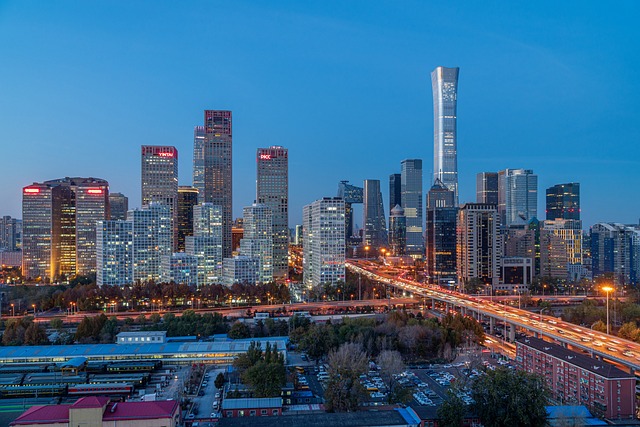
After Vladimir Putin’s invasion of Ukraine two years ago, over three dozen nations, primarily led by Western powers, imposed extensive economic sanctions on Russia in an attempt to undermine its ability to sustain the ongoing war in the long-term. The sanctions covered different sectors including energy, commodities, finance, technology, travel, and shipping. However, as we have witnessed, Russia has been able to fund the war up to this point without suffering the impact of the sanctions to the extent expected and hoped for. This can be largely attributed to the support that Asia, specifically China, has provided Russia.
Russia has been able to redirect most of its previous trade with the West towards Asia, thereby undermining the efficacy of the imposed sanctions. Notwithstanding the sanctions imposed by South Korea, Australia and Japan, the shift is still significant, primarily thanks to China, which has played a pivotal role in subverting the impact of Western sanctions. It is worth noting that in 2022, trade between Russia and China surged by 29%. Together with Hong Kong, China has been the primary supplier of microchips to Russia, which are essential for weapons utilised in the war in Ukraine and one of the main targets of the sanctions. Even just by being able to access them Russia has defeated one of the main purposes of Western ban on exports. Chinese support is inevitably vital to Russia; however, it is not the only factor allowing it to sustain the war.
It has recently been exposed how Russian military enterprises acquire sophisticated machine tools from Taiwan, despite the sanctions. This is possible through middlemen, especially in Turkey, which facilitate the transactions. Furthermore, countries like Kazakhstan and Kyrgyzstan serve as conduits for shadowy “parallel imports” into Russia, significantly boosting trade with their neighbour. The impact on the oil sector is particularly notable. Before the invasion, Europe purchased three-fifths of Russia’s oil exports, a figure that has dramatically decreased due to the ban on sea routes. Meanwhile, Russia’s oil exports to Asia have surged, with India emerging as the largest buyer. The complex case of Singapore, which condemned Russia’s aggression but continues to import Russian oil, underscores the intricacies of global oil dynamics and regional economic interests that have undermined the common effort to sabotage Russia’s war in Ukraine.
The way things have developed from the start the of the war and following the imposition of sanctions was predictable; in fact, from the outset, the West was aware that the sanctions had to contend with Asia’s indifference. Nonetheless, imposing a strict regime of secondary sanctions on third parties assisting Russia was a risky option, considering Asia’s economic and geopolitical significance, especially China’s. Nonetheless, it now seems that secondary sanctions have gained momentum. There have been talks of escalation of sanctions against entities supporting Russia’s war economy. President Joe Biden’s executive order in December outlined secondary measures against foreign firms and banks. Similarly, The European Union is set to introduce sanctions against companies in mainland China for the first time, as part of its latest efforts to close loopholes facilitating the diversion of military technology to Russian weapons factories through third-party countries.
In an attempt to avoid technology being sold outside its jurisdiction and then reaching Russia via intermediary countries, the EU’s diplomatic service proposed adding around 20 firms, including three in mainland China, one in Turkey, and one in India, to an export blacklist targeting entities supporting Russia’s military endeavours. Furthermore, two Russian shipping companies accused of transporting arms from North Korea to Dunai would also be included. Finally, the planned sanctions are also set to target numerous Russian officials with asset freezes and visa bans in the EU as well as “re-education institutions” operating in Russia and occupied territories.
Considering how many different sanctions have been imposed in the past two years, a question as to their effectiveness arises. Western allies estimate that existing measures have already costed Russia $400 billion, nonetheless, as seen this has not stopped Russia from receiving the necessary support from its allies for it to continue the war in Ukraine. Ultimately, it is arguably safe to assume that even if the West was to successfully impose strict secondary sanctions to coerce Asian countries this would have little impact on the current situation. This is so for, the real target of these sanctions would have to be China, Russia’s main ally; however, the US and the EU have failed to ensure Asian countries’ compliance with a sanction regime against Russia, a relatively non vital ally for them, therefore the chances of them complying with a sanctions regime against China are very slim. China’s compliance is also unlikely and, importantly, Western leverage against China is insufficient to extort compliance, especially considering how Chinese and Russian interests have now become increasingly entangled. As a result, although secondary sanctions targeting Asian countries supporting Russia would be a bold move from the West, whether they will be effective where previous sanctions failed remains uncertain.
By The European Institute for International Law and International Relations















